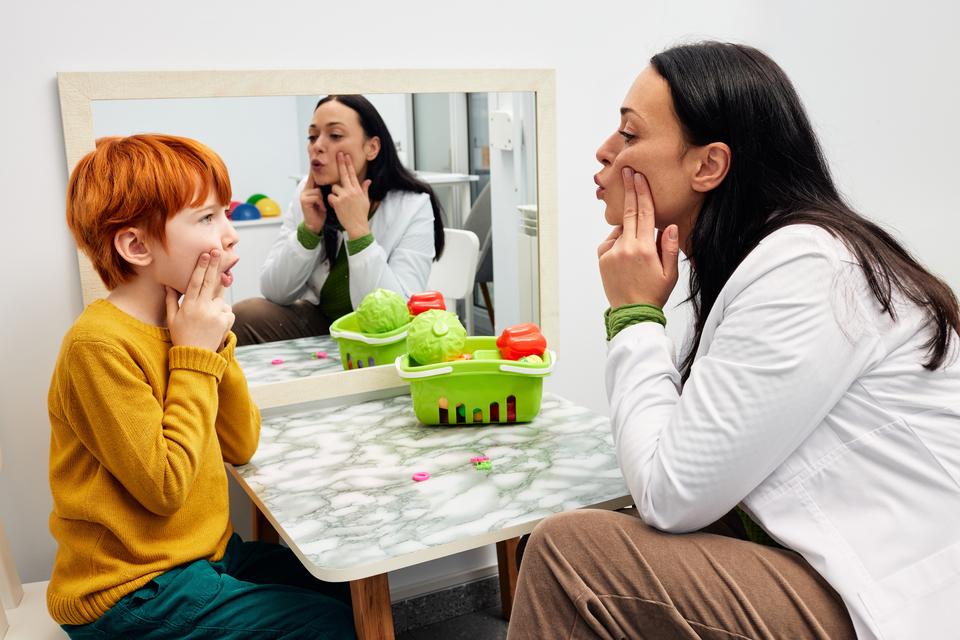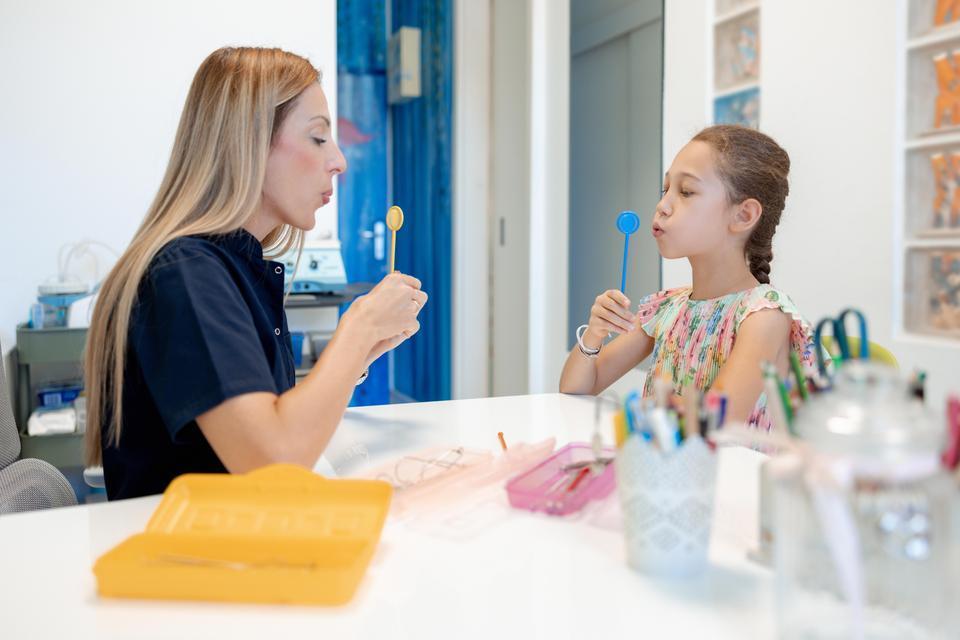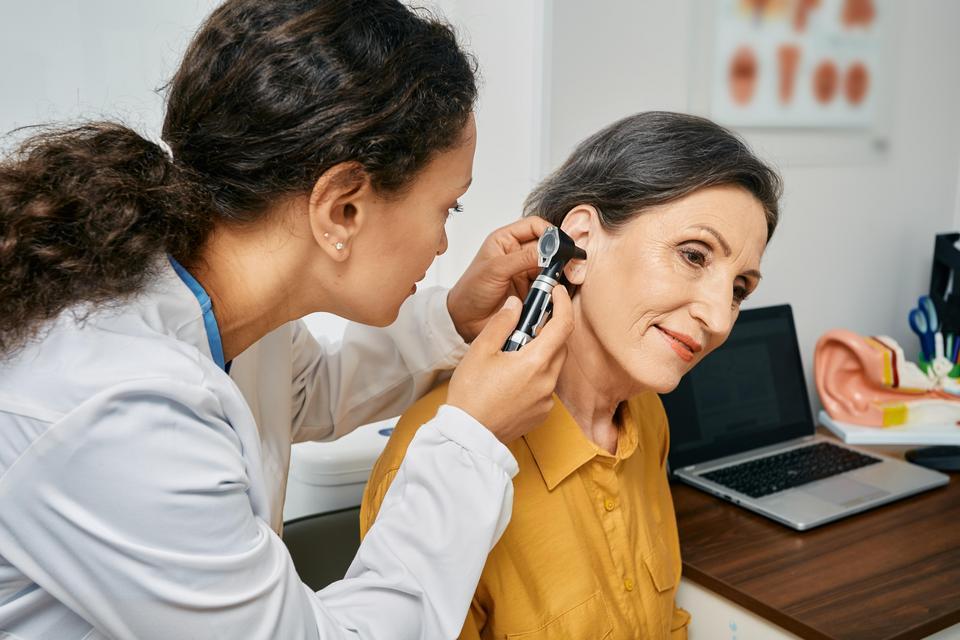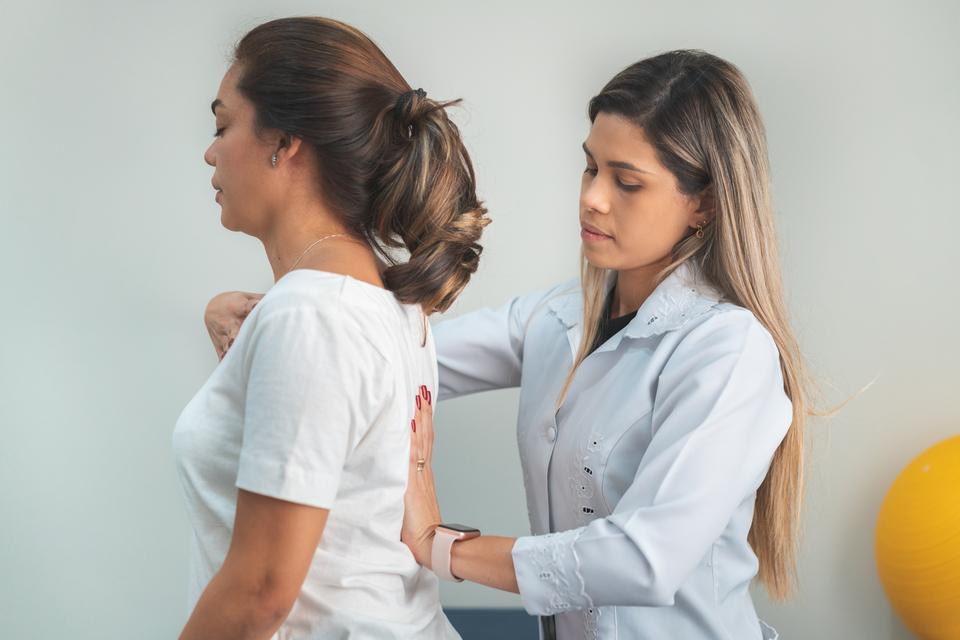“Why am I going to speech? I talk just fine!”
When you think of speech therapy, you probably think about children learning to make the correct sounds, like fixing a lisp, but that is only one part of what a speech-language pathologist (SLP) does. SLPs treat disorders that affect the entire communication system, including the brain, mouth, voice box (larynx), and sometimes lungs. In the medical field, we work in outpatient clinics and home health care, at acute and rehab hospitals, and in skilled nursing facilities.
10 things you may not know a speech-language pathologist treats:
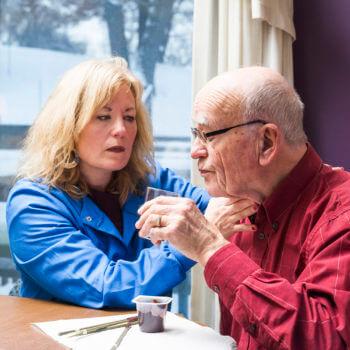
1. Swallowing/Dysphagia
SLPs are experts in how the larynx (voice box) and throat muscles work during swallowing. We help identify when food and drinks go the wrong way, suggest easier foods and drinks swallow and provide exercises to make the muscles work better. Our team includes specialists trained in adult and pediatric swallowing therapy, and we offer video swallow studies in conjunction with Radiology (Video Fluoroscopic Swallow Studies/Modified Barium Swallows).
2. Head and Neck Cancer
When radiation is a part of treatment for cancer of the mouth or throat, it can lead to swallowing problems. Our SLPs join together with Ear, Nose, and Throat (ENT) doctors and the team at the Head and Neck Cancer Clinic with preventative care, treating swallowing difficulties, and providing communication training for people who have had their larynx removed.
3. Strokes, Brain Injury, and Neurological Changes
Following changes to the brain through injury or a disorder, people can have trouble talking, getting their words out, and solving problems. SLPs provide therapy to help people improve their talking, language use, and cognitive and thinking skills. We also offer LSVT LOUD to increase the loudness in one’s voice to help treat voice problems for people with Parkinson’s.
4. Social Skills
Communication isn’t just the words you say, but how you say it. We work with people with language disorders on how to interact with others, including nonverbal communication, implications, and figurative language. This can be helpful after a brain injury or for people with autism.
5. Communication Devices
Some people can’t communicate well by talking, including those who are nonverbal from childhood or those that lose their ability to talk later in life. SLPs teach individuals to use communication systems and/or speech-generating devices so they can communicate with others.
6. Voice*
Have you ever lost your voice? Sometimes this is just part of being sick, but it can also signal bigger problems if it goes on for two or more weeks without reason for laryngitis. Ear, Nose, and Throat (ENT) doctors evaluate the vocal cords and will refer to an SLP if they feel it is beneficial. At Altru, we have a voice specialist who is trained to work with people who use their voices for a living, including singers and performers.
7. Language Development
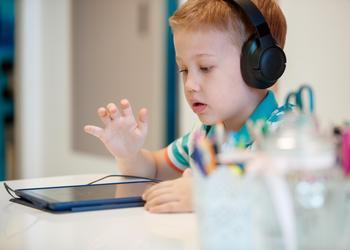
Children learn to talk by interacting with the adults around them, but some kids need extra help to get started or keep going. Pediatric SLPs provide therapy to infants through high school-age teenagers who have trouble learning language and communicating. SLPs recommend evaluating kids who aren’t talking around 12 months or aren’t using two-word phrases around 24 months.
8. Stuttering*
The field of speech-language pathology initially started with treating stuttering, also call fluency disorders. Stuttering can be short-term in early childhood but maybe lifelong when the child stutters for over 6 months or if it becomes worse. Learning strategies for smoother speech can help people, including adults if they are bothered by having a stutter.
9. Hearing
Do you hear what I hear? SLPs provide therapy to children and adults with hearing aids and cochlear implants to learn or relearn how to listen to the speech. Your audiologist can tell you if speech therapy could help you understand speech better.
10. Speech Sounds
SLPs work with kids who have trouble making speech sounds or mix up their sounds. This is what SLPs are best known for. We don’t only work with kids; we can help adults after a stroke or when a neurological problem changes their speech. Adults who have a lisp, trouble with ‘are or want to reduce a foreign accent can work with SLPs, too.*
*Speech services for voice, transgender voice training, stuttering, accent reduction, and selected other services may not be covered by insurance depending on your plan. Please check with your insurance provider. Altru can provide these services electively if they are not covered.
Altru Health System provides outpatient speech, occupational and physical therapy for adults and children at the Altru Performance Center next to Hugo’s on Columbia. Altru also has speech-language pathologists that travel to visit patients throughout our region.
If you need a referral to see a speech-language pathologist, please talk with your primary care provider. If you have questions or would like to schedule an appointment, please call adult speech services at 701.780.2330 or speech pediatric therapy services at 701.780.2477.


